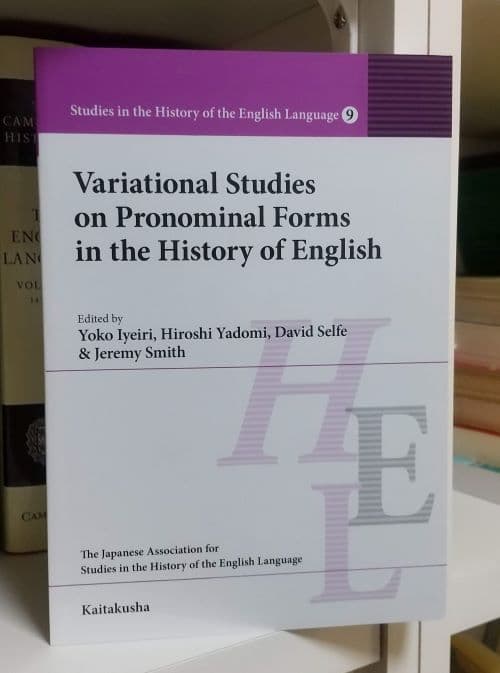“The taking off and catching on of etymological spellings in Early Modern English: Evidence from the EEBO Corpus”
Bibliographical details
Hotta, Ryuichi and Yoko Iyeiri. 2022. “The taking off and catching on of etymological spellings in Early Modern English: Evidence from the EEBO Corpus”, in English Historical Linguistics. Historical English in Contact. Papers from the XXth ICEHL, ed. Bettelou Los, Chris Cummins, Lisa Gotthard, Alpo Honkapohja and Benjamin Molineaux, pp. 143-163. John Benjamins.
DOI: 10.1075/cilt.359.08hot
While it has been shown in previous studies that the etymologizing of English spelling reached its peak in the 16th century, the process and timing seem to differ significantly depending upon the lexical item. This study examines selected lexical items by using the EEBO Corpus (Early English Books Online) and shows that it is imperative to observe the etymologizing process within the framework of lexical diffusion. The periods before and after the 16th century are worth further investigation.
This paper is based upon our paper presented at the 20th International Conference on English Historical Linguistics (27-31 August 2018), held at the University of Edinburgh.
See also my research project page on English spelling.
Related publications
- Uchida, Mitsumi & Yoko Iyeiri. 2023. “Etymological and Non-etymological Spellings of FALCON and SOLDAN (SULTAN) in Caxton’s Paris and Vienne and Some Related French Versions”. Kwansei Gakuin University School of Sociology Journal 140: 69-83. (Downloadable PDF)
- Iyeiri, Yoko & Mitsumi Uchida. 2021. “Etymological Spellings in William Caxton’s Translations”. English Studies 102(8): 991-1001.
- Iyeiri, Yoko. 2017. “The Spelling and Syntax of Doubt in Early Modern English: Variation and Latin Influence”, in Language Contact and Variation in the History of English, ed. Mitsumi Uchida, Yoko Iyeiri & Lawrence Schourup, pp. 43-60. Tokyo: Kaitakusha.

